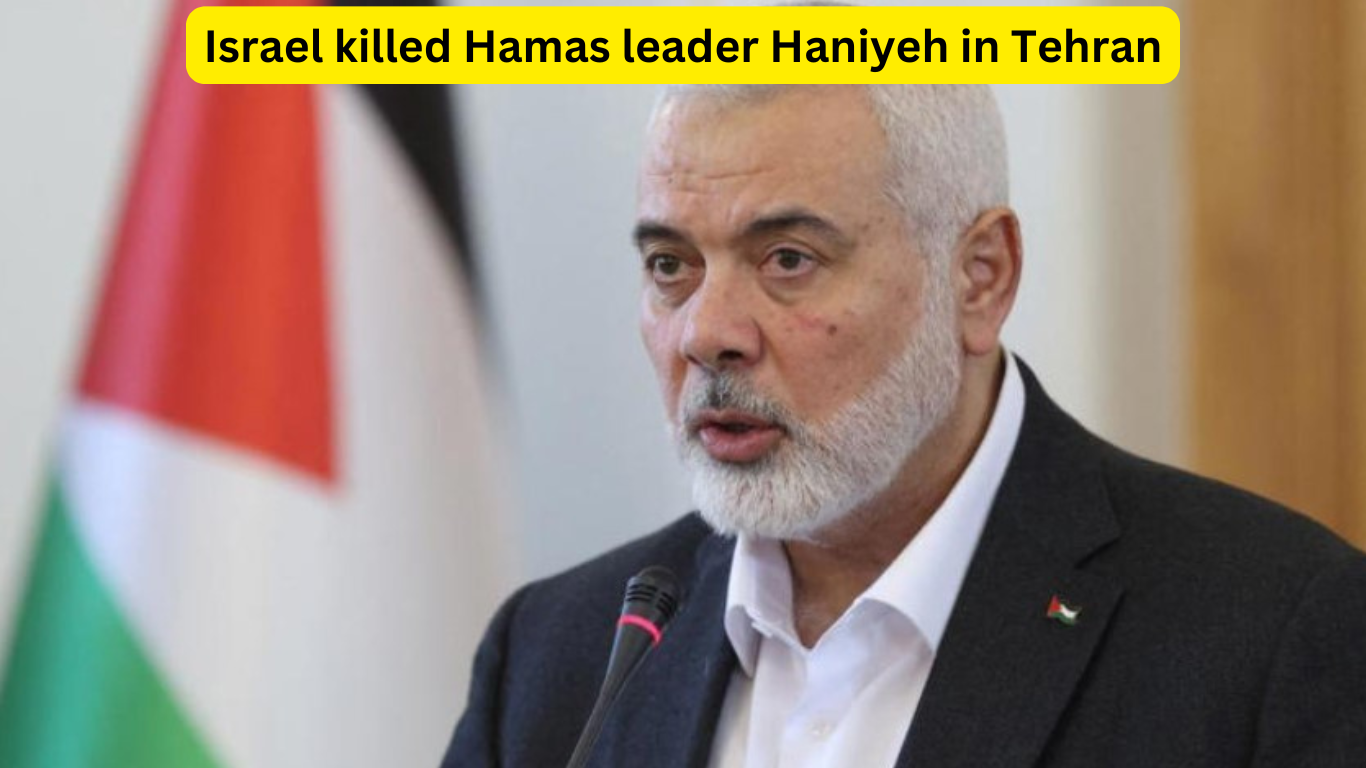For the first time, Israel’s Defense Minister Israel Katz has confirmed that Israel killed Hamas leader Ismail Haniyeh in an attack in Tehran in July. This acknowledgment follows months of speculation surrounding the incident. Haniyeh, who played a critical role in Hamas’s leadership, was killed in a building he was staying in. The attack on Haniyeh is part of Israel’s broader strategy to eliminate key leaders of groups it deems threats to its security, including Hamas, Hezbollah, and the Iran-backed Houthi movement.
Israel killed Hamas leader Ismail Haniyeh as part of its efforts to target senior figures in organizations backing violent actions against Israel. Katz further emphasized that the Israeli military would continue its efforts to “decapitate” the leadership of these groups, including the Houthis in Yemen. He highlighted that just as Israel killed leaders such as Haniyeh, Yahya Sinwar, and Hezbollah’s Hassan Nasrallah, it would similarly target Houthi leadership in the cities of Hodeida and Sanaa. This military approach is a reflection of Israel’s ongoing struggle against Iran-backed forces in the region.
As the conflict continues, Israel also faces diplomatic pressures, with some progress made in ceasefire talks between Hamas and Israel. However, Israeli Prime Minister Benjamin Netanyahu stated that no timeline could be provided for an official agreement. Amid these talks, humanitarian organizations continue to report severe civilian casualties in Gaza, with the international community increasingly calling for greater aid access and a resolution to the crisis.
Haniyeh, once the overall leader of Hamas, played a pivotal role in negotiations for a ceasefire in Gaza. His death led to the rise of Yahya Sinwar as Hamas’s new leader, who was later killed in Gaza. This reflects Israel’s continued strategy of eliminating key figures of groups it deems as threats.
In the wider context, Israel’s military operations against Hamas continue to be intense, with the ongoing war in Gaza causing significant casualties. The humanitarian situation remains dire, with numerous reports of civilian casualties. Humanitarian organizations like Oxfam and Human Rights Watch have criticized Israel for obstructing aid efforts, while Israel counters that it has facilitated substantial aid shipments.
Meanwhile, Israeli Prime Minister Benjamin Netanyahu acknowledged some progress in ceasefire negotiations with Hamas but refrained from offering a timeline for a potential deal. As the situation evolves, the conflict in Gaza remains a central focus of international diplomatic efforts.
For ongoing updates on the Israel-Hamas conflict and related Middle East tensions, stay tuned.
Related Reads:
- How Israel’s Military Strategy Targets Terrorist Leaders
- Impact of Iran’s Support for Hamas and Hezbollah
Learn More About the Iran-backed Houthi Movement:

